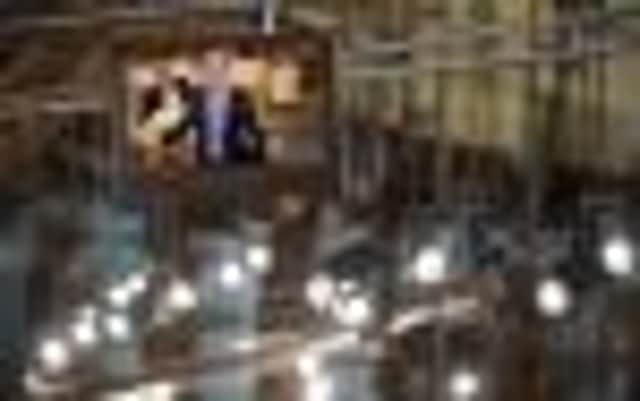Leaders: Low expectations met in tough but realistic budget


After three years of austerity, the public is now well versed in the realities of budget deficits and debt. This severe constraint not only coloured the presentation yesterday, but it is also set to do so for the foreseeable future, whichever constitutional path Scotland chooses to take.
Within this confined fiscal space, Mr Swinney opted to give as much support as he could to spending that might work to promote a broader economic stimulus. In this he was right to do so. Over the next two years his budget package proposes spending of £180 million on skills, construction and the green economy.
Advertisement
Hide AdAdvertisement
Hide AdArguably the most important stimulus was an additional £40m investment in affordable housing. Not only does this tackle an issue of evident social need, but it also gives a fillip to a deeply demoralised construction industry. For all the merits of big infrastructure projects, it is a boost to house building that is most likely to bring a quick benefit by way of employment. Also welcome was the focus on construction investment through an £80m schools programme.
Other small but well-targeted measures included an Energy Skills Academy to support skills in the oil and gas and renewables sectors, a national employer recruitment initiative which would create up to 10,000 opportunities for small and medium-sized companies to recruit young people, and £17m towards college education and student support.
The budget maintains commitments on the NHS budget as well as tuition fees, a council tax freeze, police numbers, free prescriptions and concessionary travel. But there has to be a question mark over how long such universal benefits can continue in an era of budget restraint stretching out to 2014-15 and beyond. Public sector pay rises are to be capped at 1 per cent, though this may well ignite pay claims for at least this amount across local government.
The message that needs to be hammered home is that pay claims can only be met at the expense of jobs. No matter how obvious this message, it clearly needs to be repeated.
Mr Swinney insists that his plans are marked by “a relentless pursuit of economic growth”. This mission might have been more credible were he not so reliant on an increase in business rates to maintain local authority spending – this rate income will rise from £2.27 billion this year, to £2.43bn in 2013-14 and up to £2.6bn by 2014-15.
That is a big minus for business growth and private-sector employment. Fortunately, the small business relief scheme is being maintained.
All this is tough medicine, but the broad thrust of the budget is correct: economic stimulus is and must remain the priority of the Scottish Government.
Sorry is the hardest word
Saying sorry is the hardest thing to do. It has come very hard indeed for Nick Clegg and the Liberal
Advertisement
Hide AdAdvertisement
Hide AdDemocrats. In his party political broadcast next week, which has been released ahead of what promises to be a difficult party conference, the Deputy Prime Minister will apologise for breaking the party’s pledge to oppose tuition fees.
As former Scottish leader Tavish Scott will avow, the party here paid a colossal price in the Holyrood election last year for this U-turn and is continuing to suffer in the opinion polls which show a dramatic collapse in Lib Dem support. Is a recovery possible? It is hardly likely that one will come on a scale sufficient to save the party from a major reversal at the next Westminster election.
It is tempting to pile all the blame on politicians keen to win votes by statements and promises that are financially reckless and politically high risk.
But there is a deeper problem here for modern social democratic politics. The more we treat election campaigns as an auction of financial benefits – particularly at a time of severe restraint – the greater it undermines long-term trust in politics and the political process. It could be argued that the voting public should have known better than to be taken in.
But so long as politicians keep pretending that the impossible can be guaranteed, the longer it will take the public to believe that the political game really has changed for the better.
It is not just Mr Clegg who has to learn from this episode, but politicians as a whole. And this lesson is one likely to be repeated as public spending cuts really start to bite. There is more to modern politics than promises of free sweets and giveaway toffee apples.